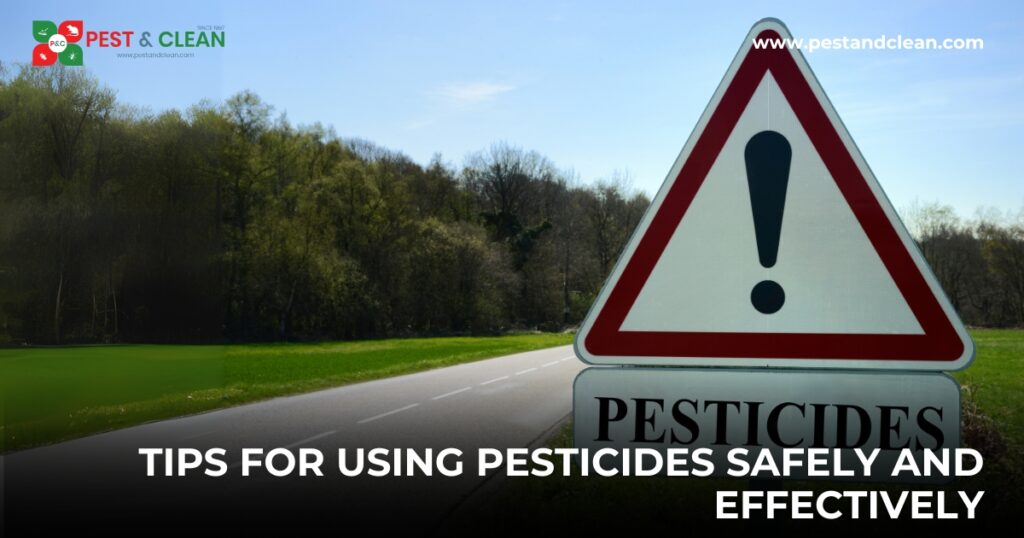
Pesticides are an essential tool in pest control, helping to protect our homes, gardens, and agricultural lands from harmful pests. However, improper use of pesticides can pose risks to your health, the environment, and even the plants you aim to protect. To ensure their safe and effective use, here are some essential tips for handling and applying pesticides:
1. Identify the Problem First
Before reaching for pesticides, identify the type of pest you’re dealing with. Misidentifying the pest can lead to the use of the wrong pesticide, which can be ineffective or harmful. For example, ants require different treatments than cockroaches or termites.
2. Choose the Right Pesticide
Not all pesticides are created equal. Some are designed for indoor use, while others are for outdoor applications. Always read the label to ensure the product is suitable for the pest you want to control and safe for your specific environment.
3. Read and Follow Label Instructions
The label is your guide to safe pesticide use. It provides information on proper dosage, application methods, and precautions. Overusing pesticides can harm beneficial insects, pollute the environment, and create resistance in pests.
4. Wear Protective Gear
When handling pesticides, always wear appropriate protective gear such as gloves, masks, goggles, and long-sleeved clothing. This prevents direct contact with harmful chemicals and reduces the risk of inhaling fumes.
5. Apply in Optimal Weather Conditions
Avoid using pesticides on windy days or during rainfall. Wind can carry the pesticide to unintended areas, while rain can wash it away, reducing its effectiveness and potentially contaminating water sources.
6. Store Pesticides Safely
Always store pesticides in their original containers with the label intact. Keep them out of reach of children, pets, and unauthorized persons. Avoid storing them near food, water supplies, or flammable materials.
7. Dispose of Pesticides Responsibly
Never pour leftover pesticides down the drain or dispose of them in regular trash. Contact your local waste management authorities for guidelines on disposing of hazardous materials.
8. Use Integrated Pest Management (IPM)
Consider incorporating pesticides as part of an Integrated Pest Management strategy. Combine chemical treatments with non-chemical methods like traps, natural predators, and proper sanitation for a more sustainable approach to pest control.
9. Protect Non-Target Species
When applying pesticides, ensure that beneficial insects such as bees and butterflies, as well as pets and wildlife, are not harmed. Use targeted applications and avoid spraying blooming plants.
10. Ventilate After Indoor Application
If you’re using pesticides indoors, make sure to ventilate the area properly. Open windows and doors to let fresh air circulate, and wait for the recommended time before re-entering treated spaces.
11. Avoid Over-Application
More is not always better when it comes to pesticides. Overuse can lead to pest resistance, environmental pollution, and harm to humans and animals. Stick to the recommended dosages and application intervals.
12. Keep Emergency Contacts Handy
Accidents can happen even with careful handling. Keep the contact details of your local poison control centre and emergency services readily accessible in case of exposure.
Pesticides are powerful tools in pest management, but they must be used responsibly to protect your health and the environment. By following these tips, you can effectively control pests while minimizing risks. For professional assistance, consider hiring experts like Pest and Clean Service in Oman for safe and efficient pest control tailored to your needs.
Are you looking for professional advice or services to handle pests? Contact us today and experience the best pest and clean services in Oman!
